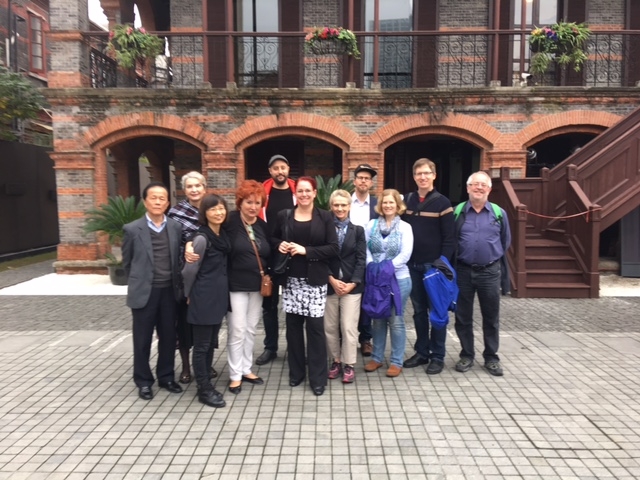猶太奧地利-猶太中國(guó)”報(bào)告會(huì)順利召開(kāi)
“猶太奧地利-猶太中國(guó)”報(bào)告會(huì)由tyc1286太陽(yáng)集團(tuán)德語(yǔ)系、奧地利中心、奧地利駐上海領(lǐng)事館、上海猶太難民紀(jì)念館共同舉辦,旨在以猶太民族為切入點(diǎn),探討奧地利與中國(guó)之間的歷史、文化聯(lián)結(jié)。報(bào)告會(huì)于11月18日在奧地利中心開(kāi)幕,奧地利駐上海總領(lǐng)館全程支持了開(kāi)幕式活動(dòng)。
Co-hosted by the German Department of Fudan University, Austrian Center, Austrian Consulate General, and the Jewish Refugees Museum of Shanghai, “Jewish Austria-Jewish China” Congress aimed to view the historical and cultural connections between Austria and China through the lens of Jewish-related topics. The opening ceremonywas held at Austrian Center on November 18th,in courtesy of Austrian Consulate General.
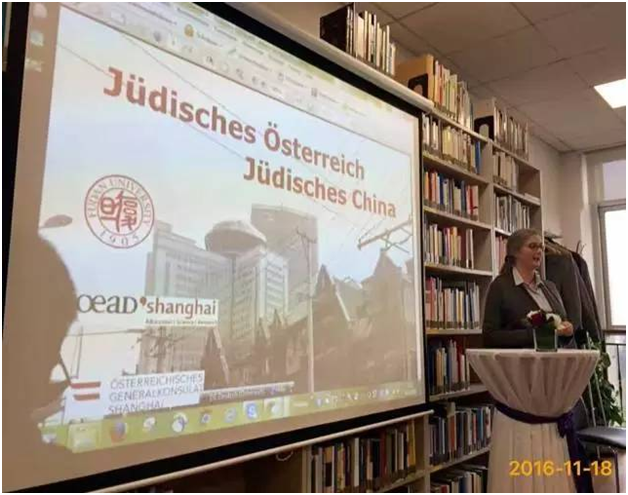
奧地利駐上海總領(lǐng)事Silvia Neureithers女士致開(kāi)幕辭
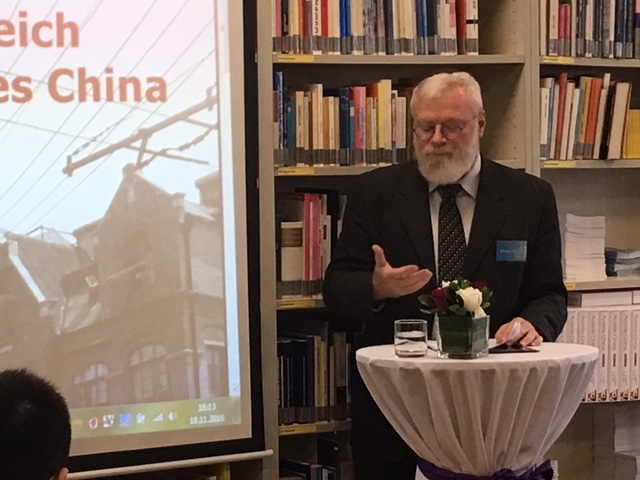
以色列本·古里安大學(xué)Mark H. Gelber教授
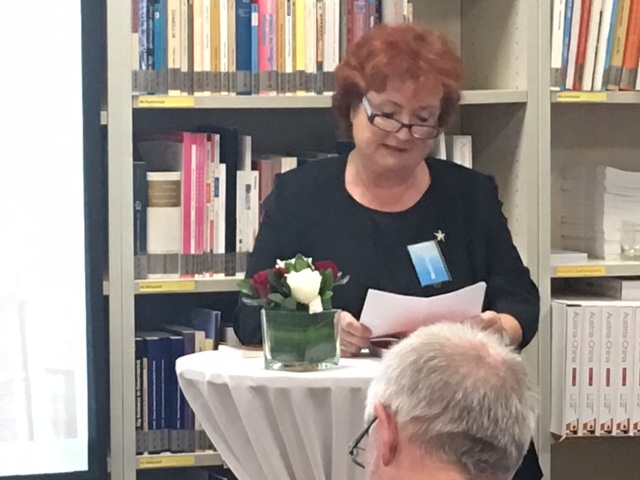
奧地利作家Elisabeth Buxbaum
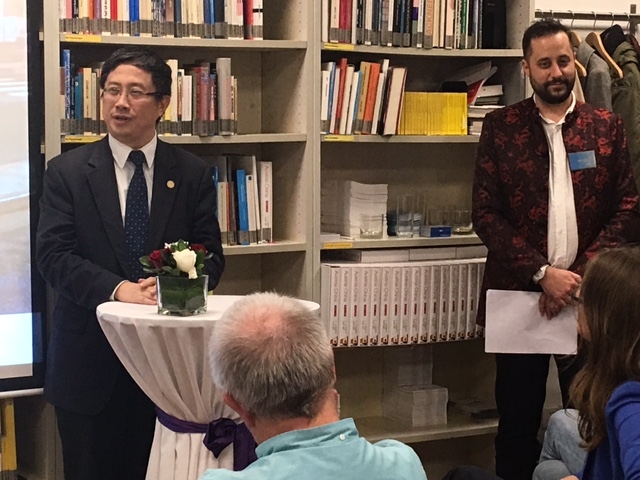
左為tyc1286太陽(yáng)集團(tuán)外事處處長(zhǎng)朱疇文(Dr. Zhu Chouwen),右為奧地利交流中心(OeAD)派遣來(lái)滬講師Urs Luger
次日,來(lái)自tyc1286太陽(yáng)集團(tuán)、北京大學(xué)、維也納大學(xué)、首爾國(guó)立大學(xué)等中外學(xué)府的23位學(xué)者匯聚白馬咖啡館,發(fā)表了內(nèi)容豐富的演講。白馬咖啡館位于上海猶太紀(jì)念館正對(duì)面,曾是猶太難民重要的聚會(huì)場(chǎng)所,本次報(bào)告會(huì)在此召開(kāi)也因而益發(fā)具有紀(jì)念意義。
The next day, twenty-three scholars from a range of universities, such as Fudan University, Peking University, Vienna University, and Seoul National University, gathered at White Horse Inn, and delivered profound and inspiring speeches. White Horse Inn, opposite to the Jewish Refugees Museum in Shanghai, is a particularly meaningful site for this Congress, since it used to play a crucial role in Jewish refugees’life in Shanghai.
當(dāng)天的報(bào)告會(huì)分為兩組。一組學(xué)者著眼歷史,回溯了二戰(zhàn)期間猶太難民在上海避難的經(jīng)歷。另一組學(xué)者則以文學(xué)的角度入手,從卡夫卡、茨威格、羅特等著名猶太奧地利作家的作品中,探究他們對(duì)于中國(guó)文化的理解以及中國(guó)文化對(duì)他們的影響。
he speeches followed two lines: history and literature. One group of scholars traced back to Jewish refugees’ exile to Shanghai during World War II, while other scholars delved into the works of renowned Jewish Austrian writers such as Franz Kafka, Stephan Zweig, and Joseph Roth, and explored their understanding towards Chinese culture as well as the influence of Chinese culture on them.
11月20日,與會(huì)者一同參觀了虹口區(qū)原“猶太人隔都”(Ghetto)地區(qū)以及上海猶太難民紀(jì)念館,為本次報(bào)告會(huì)活動(dòng)畫(huà)下了圓滿的句號(hào)。
The speakers and other participants also visited the former Jewish Ghetto in Hongkou District and the Jewish Refugees Museum of Shangahi on November 20th.
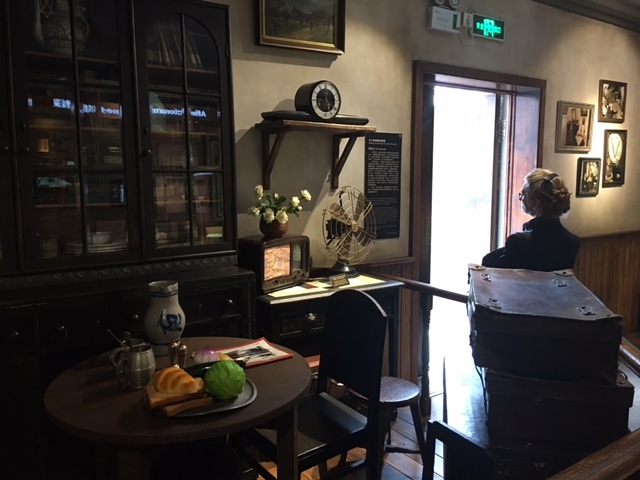
猶太難民紀(jì)念館內(nèi)景
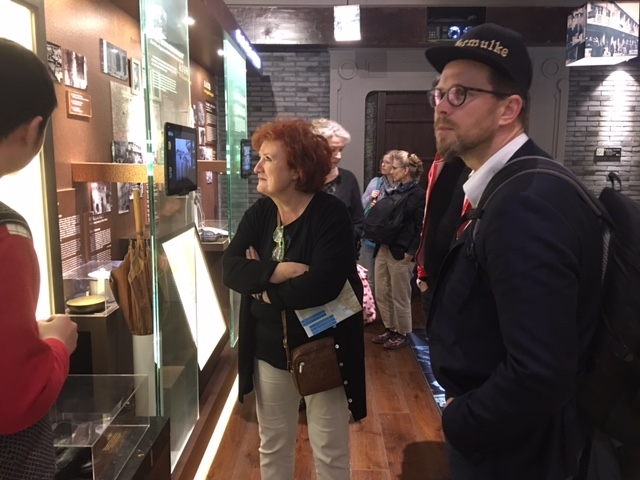
與會(huì)者參觀紀(jì)念館
